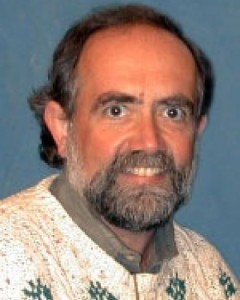
Fellows come from all over the university, bringing their particular passions and living out the public purpose of their discipline through teaching and researching in, with and for community.
See Details
Because engagement is a concept that encompasses diverse activities and approaches, misconceptions may deter some educators from incorporating engaged learning into their classes. Jim Lassoie is assessing different notions of engagement through an analysis of Engaged Cornell and Cornell Cooperative Extension, focusing on how they differ in student involvement and reciprocity with community partners. In addition, based on his experience teaching a community-engaged course in Ecuador for three years, Lassoie is analyzing the successes and pitfalls of the course as well as the long-term impacts of the experience on former students. His scholarly framework for rethinking community development in higher education will be informative for any educational institution or practitioner establishing community engagement programs.
Fellows come from all over the university, bringing their particular passions and living out the public purpose of their discipline through teaching and researching in, with and for community.
See Details
As New York’s Land Grant Institution, Cornell’s mandate for ‘public service’ has set it apart from other Ivy League universities throughout its 150-year history. This responsibility is embodied in the College of Agriculture and Life Sciences’ (CALS) long-time commitment to community engagement through Cornell Cooperative Extension (CCE). With roots to the agricultural community, CCE now “…puts knowledge to work in pursuit of economic vitality, ecological sustainability and social well-being.…bring local experience and research based solutions together, helping New York State families and communities thrive in our rapidly changing world.” This research-extension nexus emphasizing the importance of applied, or socially relevant, research has also been historically evident in the institution’s approach to providing students with broad educational opportunities in the “agriculture and the mechanical arts” in accordance with the Morrill Land Grant Act of 1862. However, beyond perhaps a course or two the research-extension nexus is not pedagogically incorporated into curricula in the natural sciences.
Likewise, CALS’s Department of Natural Resources (DNR), with roots as the nation’s first forestry college established in 1898, has focused on the application of interdisciplinary science to societal problems related to the management of natural and environmental resources. Hence, its CCE programs and undergraduate curriculum have evolved greatly over this 115+ year history in response to the changing needs of society. The Department recently discontinued its 65-year-old Natural Resources major after a yearlong effort to recast it as Environmental and Sustainability Sciences (ESS) in order to better address student and worldwide interests in environmental conservation and sustainable development.
Cornell University has pursued its public service mandate through a variety of programs in addition to CCE, which is confined primarily to the institution’s four NY State Contract Colleges, which includes CALS. In particular, Engaged Learning and Research (ELR) and The Public Service Center have connected students to meaningful community-based service-learning opportunities for many years and now, with CCE and The Cornell Commitment, form established pillars supporting the new Engaged Cornell Initiative. It is important to note, however, that community-engaged learning is historically grounded to the early work of John Dewey in experiential education, while CCE lacks a clear pedagogy for incorporating the research-extension nexus into applied curricula like ESS.
The ESS curriculum is relatively new and rapidly evolving as we test various approaches to learning and adapt to newfound insights. Although administratively centered in the DNR, faculty members and courses supporting this major are distributed across 20 academic departments in four different colleges.
The collective hope is that this new curriculum will yield graduates capable of addressing the many complex environmental problems currently facing societies worldwide. However, despite the implied central role for community-engaged learning in meeting this objective, the disciplinary diversity represented by the major’s multi-department faculty has slowed the integration of this pedagogy into the curriculum beyond a single course or two. Even those who see community-engaged learning as a possible trademark for ESS, do so from the research-extension nexus rather than the education pedagogy supporting service learning. This is further complicated by the lack of a clear tie to education and teaching in the research-extension nexus. Furthermore, ESS faculty in bio/physical disciplines often see community engagement as being irrelevant or a distraction to the educational process. The net result is that the ESS curriculum currently lacks (1) a pedagogical framework for community-engaged learning, (2) the curricular continuity needed for students interested in community service, and (3) programmatic linkages to the Engaged Cornell Initiative.
Jim accomplished three objectives as a 2015-16 Engaged Learning and Research Faculty Fellow that will significantly influence his effectiveness as a contributing member of the Cornell faculty. First, he enhanced his various teaching activities by acquiring a sound understanding of the application of educational concepts underpinning community-engaged service learning. This will have direct positive effects on student-learning outcomes associated with his courses. He also greatly expanded his network of other ELR professionals across campus and is now in a better position to assist ESS colleagues interested in adopting community-engaged service learning pedagogies. Secondly, Jim’s work leading up to and after producing the report and giving a seminar will stimulate discussions among the ESS faculty about the possible role for community-engaged service learning in the curriculum. He hopes that this would prompt and support a faculty team to pursue a Community Engaged Curriculum Grant in the future focused on enhancing engaged learning opportunities for ESS majors interested in domestic environmental problems.
Lastly, CALS, being grounded in the research-extension nexus, has numerous majors in the natural sciences that likely are facing curricular issues similar to ESS. Perhaps the insights Jim gained as a Faculty Fellow will serve as a resource for enhancing community-engaged service learning in these majors. He remains open to discussing how to enhance such an approach in these programs.
The Kaplan Family Distinguished Faculty Fellowship honors and supports faculty members who have facilitated a transformative experience for Cornell students in any number of community-engaged learning contexts.
See Details


